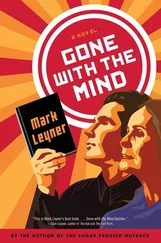Soon after Ikeand Ruthiefirst met (at the A&P where, at that time, Ikewas employed as a butcher in the meat department), they had a conversation one spring day in the park about each other’s past relationships and about love and about what one could realistically hope for in a marriage, etc. Ruthieasked Ikeif he thought he understood women well. Ikegot very quiet and thought about this for a while, as he tossed handful after handful of croutons to the swans and mice that had gathered at their feet. Finally, he told Ruthiethat he was going to make a list. “Not a list of which celebrities you think should be guillotined,” she said, coyly averting her eyes and smiling flirtatiously at him. “No,” he said, “a list of ten things that I know for sure about women.” About a week later — to show Ruthiea more delicately registered sensibility than he, a gym-rat and butcher, suspected Ruthiegave him credit for— Ikepresented the list (entitled “10 Things That I Know for Sure About Women” but including an 11th) to Ruthieas they sat on the very same bench in Lincoln Park:
Even little girls, in all their blithe, unharrowed innocence, have a presentiment of sorrow, hardship, and adversity…of loss. Women, throughout their lives, have an intrinsic and profound understanding of Keats’s sentiments about “Joy, whose hand is ever at his lips / Bidding adieu.”
This sage knowledge of, and ability to abide, the inherently fugitive nature of happiness somehow accounts for the extraordinary beauty of women as they age.
Women have an astonishing capacity to maintain their equilibrium in the face of life’s mutability, its unceasing and unforeseeable vicissitudes. And this agility is always in stark and frequently comical contradistinction to men’s naively bullish and brittle delusions that things can forever remain exactly the same.
Women are forgiving, but implacably cognizant.
Women are almost never gullible, but sometimes relax their vigilance out of loneliness. (And I believe most women abhor loneliness.)
In their most casual, off-hand, sisterly moments, women are capable of discussing sex in such uninhibited detail that it would cause a horde of carousing Cossacks to cringe.
Women are, for all intents and purposes, indomitable. It really requires an almost unimaginable confluence of crushing, cataclysmic forces to vanquish a woman.
Women’s instincts for self-preservation and survival can seem to men to be inscrutably unsentimental and sometimes cruel.
Women have a very specific kind of courage that enables them to fling themselves into the open sea, into some uncharted terra incognita — whether it’s a new life for themselves, another person’s life, or even what might appear to be a kind of madness.
Women never — no matter how old they are — completely relinquish their aristocratic assumption of seductiveness.
And here is one last thing I know — and I know this with a certitude that exceeds anything I’ve said before: that men’s final thoughts in their waking days and in their lives are of women…ardent, wistful thoughts of wives and lovers and daughters and mothers.
Ruthiefound this so beautiful and so moving that she wept as she read it. In the coming weeks, though, she’d discover that Ikehad plagiarized it, from beginning to end, word for word, from something that had appeared in the November 2008 issue of O, The Oprah Magazine. But by then she’d already fallen deeply in love with him, and not at all in spite of what he’d done, but, in large part, because of it — here was a man willing to steal for her, a man with a big enough nutsack that he was willing to brazenly steal another man’s words, another man’s ideas (his most precious intellectual property)…for her.
Ninety-seven percent of people think that it was SUPER-SEXY of Iketo totally plagiarize that from O, The Oprah Magazine !! The Club Kids Vs. The Hasids
Ikehas suffered from irregular clonic jerks of the head and neck ever since he was hit by a Mister Softee truck on Spring Break when he was eighteen years old. High on ketamine, wearing silver lederhosen and a hat made out of an Oreo box at the time, he initially claimed he’d been hit by a Hasidic ambulance in an effort to foment an apocalyptic Helter Skelter — type war between club kids and Hasids. Many experts, including Zsófia Csontváry-Horvathof the Institute of Linguistics and Classical Philology in Budapest (who’s slick with sweat and has a spectacular big-ass ass), maintain that those passages in The Sugar Frosted Nutsack about Ikemaking confusing and patently erroneous claims about a Hasidic ambulance are “noncanonical interpolations” and should be deemed “spurious” and deleted. Csontváry-Horvathcontends that these passages were deliberately inserted by experts who, themselves, were trying to foment an apocalyptic Helter Skelter — type war between club kids and Hasids. Of course, not only is Ike’s erroneous contention that he was hit by a Hasidic ambulance considered today a totally canonical and authentic part of The Sugar Frosted Nutsack, but Zsófia Csontváry-Horvath’s assertion that it’s a noncanonical interpolation is considered a canonical and integral part of the saga which audiences expect the chachka-jangling, sightless bards to feature prominently in their recitations. It’s also entirely possible that all this could just be another example of XOXOvandalizing The Sugar Frosted Nutsack and trying to confuse people and just fuck everything up. But let’s be absolutely clear: Ike, when he was eighteen years old, on Spring Break, and high on Special K, staggered into the street and was struck by a Mister Softee truck. And ever since the accident, the Mister Softee song loops endlessly in his head. This is not an auditory hallucination. The song is actually in there — i.e., if you put a stethoscope to Ike’s forehead, you can hear the Mister Softee song.
But Ike’s rage and his lust are strong. He’s nursed by the Gods. His honor comes from El Brazoand La Felinaand Fast-Cooking Aliand XOXO. He’s dear to them, these Gods who rule the world.
Throughout The Sugar Frosted Nutsack, Ikeis portrayed as the most soft-spoken, self-deprecating man you could possibly imagine — someone, in fact, almost ostentatious in his soft-spoken self-deprecation — and even on those rare occasions when he might come across as vain or a little smug — he is, after all, a super-sexy neo-pagan hero and a transformative human being — he’ll reveal something so disarmingly personal about himself (like his tinea versicolor or his genital psoriasis or his dermatitis herpetiformis, which sometimes requires him to soak for long hours in the bathtub with a vinegar-drenched bandana wrapped around his head) that any hint of hubris is immediately dispelled.
Ikeis preoccupied with hidden motives, and nothing makes him happier than when, presented with something fairly straightforward — a bus driver’s request for exact change, for instance — he can burrow into deeper and deeper netherworlds of subtext and sub-subtext, disclosing for himself ever-murkier layers of bewildering intrigue and subterfuge, because he believes that it’s only when confronted with something that completely befuddles us that we experience the sense of “speechless wonder” ( thaumazein ) that opens us up to a fleeting intimation of the sacred. To Ike, the Gods’ designs are revealed not in incandescent flashes of lucidity, but in the din of the incomprehensible, in a cacophony of high-pitched voices and discordant jingles. (Hey, maybe this is why he concocted that whole story about being hit by a Hasidic ambulance years ago when he’d so irrefutably been hit by a Mister Softee truck — to obfuscate the obvious and thus anoint it with a residue of divinity!) So it shouldn’t come as any surprise that the guy would eschew books in his native English and opt instead to pore over texts in languages he can’t remotely understand (particularly German). Nor should it come as any great shock that, if he’s not at the gym or making a lewd breadcrumb mandala or feeding his wife a Fig Newton, you’ll probably find Ike(“seething and petulant butcher, coiled with energy”) on his stoop or in the park or at the Miss America Diner “reading” his German books, even though he can’t understand a single word of German (in the strict sense of the word “understand”), because they are, for him, in his own mind, like magical incantations, and he’s able to distill the most essential, the most profound, esoteric, and mystical significance, not from their semantic content, but purely from the sounds of the words, from their music . And so he’ll sit there on the hot subway, hunched over his unintelligible text and swaying with concentration (and missing his stop), mouthing a passage — like the following one — out loud, over and over to himself, like some zealous foreign understudy learning his lines phonetically, or — better analogy — like some super-sexy (and totally shredded!) priest who’s been sent off to a hopelessly remote mission in the jungle, and, sitting on a sweltering train as it steams into the dark interior of the country, is zealously trying to learn the dying language of the head-hunting heathens he’s been sent to proselytize, even though he suspects, and perhaps half desires, that instead of gratefully receiving the sacrament, they might very well flog, flay, boil, and consume him:
Читать дальше












